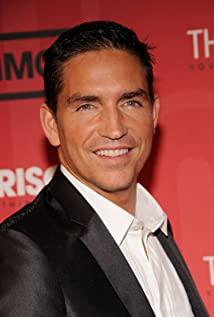one
To see a teacher's teaching level, in fact, you don't need to listen to his class, just look at the homework topics he assigns to the students. The homework assigned by Mr. Simonet to the students is: try to change the world in your own way and make the world a better place. And the homework my teacher assigned me was to recite and copy constantly.
Different homework topics reflect the teachers' different views on education. Different views on education come from different values.
In the first class of the new semester, teacher Simonet asked the students: What does this world mean to you? What do you think the world expects of you?
The question reflects the direction of concern. Mr. Simonet is discussing the world with his students, and my teachers and I are always discussing more boring exams than trivialities.
two
Questions determine direction.
The kind of questions we ask ourselves, the kind of people we become.
"How do you change the world in your own way and make it a better place?"
This question inspired the boy Trevor to think and act. His bike drives through the ghetto, and he writes down the names of people he can help. He pays careful attention to what people really need. Go and help the homeless, help your mother, teacher and friends who are always being bullied by punks at school.
He feels his power (and powerlessness) in action. A man's strength is not determined by his age, but by whether he has started to act.
He fails in action and thinks in failure.
"Is the world so bad?" he asked his teacher in frustration.
——When the homeless person he helped goes to drugs again, when he faces the bullying of his friends, he does not have the courage to stand up. When he sees people stuck in their habits, it's hard to change.
"What if you grow up and find that the world isn't the way you like it? What if it's bad?" - whether or not a teacher or parent has raised this question, it's something everyone has to face after all problem.
one day.
three
I like Mr. Ximonai very much. There is no scene of him correcting the students' homework under the light in the film, nor is he meticulously concerned about the details of the students' lives. He irons his shirts earnestly every day, sticks to his own principles, and has no infinite tenderness and tolerance for students who are late. When the students asked him what happened to the scars on his face, he did not satisfy the curiosity of the students. He does not open his privacy and private life to students.
On the contrary, I don't like that kind of "meticulous" teacher, and I don't like that kind of teacher who dedicates his whole body and mind to his students. I think how far does a person fall before he has no hobbies and life, so that students or children become his everything?
Four
Problem awareness is the key to growth.
But problems are no substitute for action, just as goals are no substitute for routes.
Trevor thinks every day: "What can I do to make this world a better place?"
Li Chongguang, a teenager in another movie "October Siege", is also thinking about similar issues. ("I close my eyes, and all I see is China's tomorrow.")
They both wanted to make the world a better place (both gave their lives for it), but chose completely different paths, with very different consequences.
Li Chongguang believes that the hope for a better world lies in leaders. So he sacrificed himself to protect the leader (Sun Yat-sen).
Trevor believes that making the world a better place is his "homework", so he sacrifices himself to protect a classmate.
five
The road to hell is often paved by those who dream of making the world a better place.
One of the things that struck me the most about the boy Trevor in the movie was that he knew that "making the world a better place" was his "homework" and that he didn't let others do it for him.
- This is something that many adults don't understand.
"Making the world a better place" is also the homework (dream) that many adults assign to themselves.
The way Trevor completes his homework is by riding his bike to the ghetto, taking the homeless home and giving him something to eat; by writing his own notes, preparing candles and flowers, and facilitating a date between his teacher and his mother; by facing the school The violence of the gangsters came forward to help the weak, even at the cost of their lives.
The way many adults do this assignment is to call on society or the government to "do something." (This action is similar to going to dad to do homework as soon as you get it.)
six
Facing the reporter's camera, Trevor said, "...people who are used to their lives are not easy to change. Even if the status quo is bad, it is difficult to change. They still give up. When they give up, everyone is a loser."
Many years after Trevor fell, on the other side of the ocean, there was also a dialogue about "self and the world".
A girl asked: "How can I recognize the cruelty and malice of the world, and at the same time love the world and live a life full of hope?"
Buffemer replied, "You are responsible for the meaning of your life. Find a way to do what you want to do. Don't be afraid, don't procrastinate, while you have time."
Picture from: Stills from the movie "Spread the Love Out"
Personal account: The wind blows flowers and snows (fengchuihualuoxue)
View more about Pay It Forward reviews











